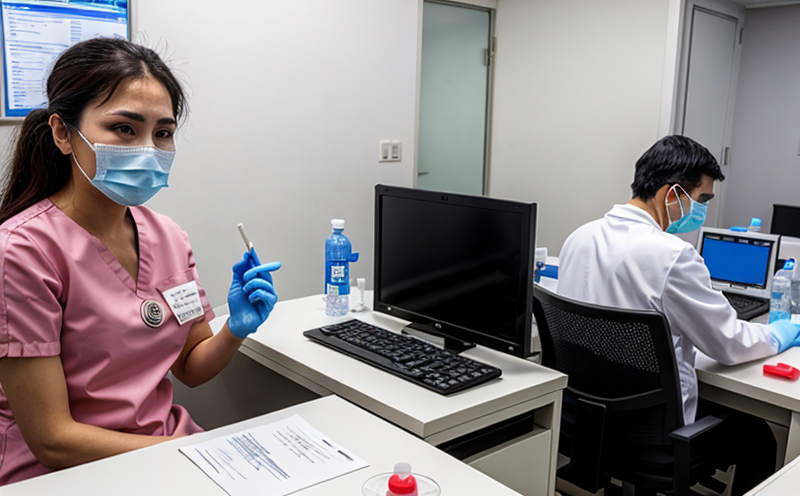Rabbit Hemorrhagic Disease Virus Serology Testing
Rabbit hemorrhagic disease (RHD) is a highly contagious and often fatal viral infection that affects rabbits. The virus, known as Rabbit Hemorrhagic Disease Virus (RHVD), belongs to the Caliciviridae family and is primarily spread through direct contact with infected animals or contaminated environments. Understanding and managing RHD is critical for maintaining healthy rabbit populations in both commercial settings and private collections.
The serological test is a valuable tool used to identify antibodies against RHVD in rabbits. This test helps in diagnosing the presence of the virus, assessing herd health, and monitoring vaccination efficacy. By detecting specific antibodies using enzyme-linked immunosorbent assay (ELISA) or similar techniques, laboratories can provide reliable results that inform critical decisions regarding animal health.
The testing process begins with proper specimen collection. Blood samples are typically collected from the jugular vein of live rabbits or obtained post-mortem for necropsy purposes. Once collected, these samples must be processed immediately to prevent degradation of the target antigens. Proper handling and storage conditions ensure accurate test results.
The serological tests employed by our laboratory comply with international standards such as ISO 15189 and are conducted using validated protocols. Our experienced technicians perform each step meticulously, ensuring consistency in methodology across all samples processed. This attention to detail guarantees the accuracy of every result we deliver.
Our service offers not only standard testing but also customized packages tailored to specific needs. Whether you require routine monitoring or one-off diagnostics, our team can accommodate your requirements efficiently. By choosing this service, you gain access to a comprehensive suite of tools designed to help maintain robust rabbit health programs.
Why It Matters
- Early detection allows for timely interventions to prevent disease spread.
- Monitoring immunity post-vaccination ensures effective protection measures are in place.
- Herd health management helps maintain optimal conditions for breeding and production.
- Avoiding economic losses due to outbreaks of RHD through proactive testing practices.
Scope and Methodology
| Parameter | Description |
|---|---|
| Type of Test | ELISA-based serological assay. |
| Sample Requirement | Whole blood or serum from rabbit subjects. |
| Target Antigen | Rabbit Hemorrhagic Disease Virus (RHVD) capsid protein. |
| Expected Result | Positive or negative antibody titer indicating past exposure to RHVD. |
Quality and Reliability Assurance
- Use of certified reagents meeting ISO 15189 standards.
- Diligent calibration of equipment to ensure precision.
- Ongoing staff training on the latest techniques.
- Regular internal and external audits conducted by accredited bodies.





